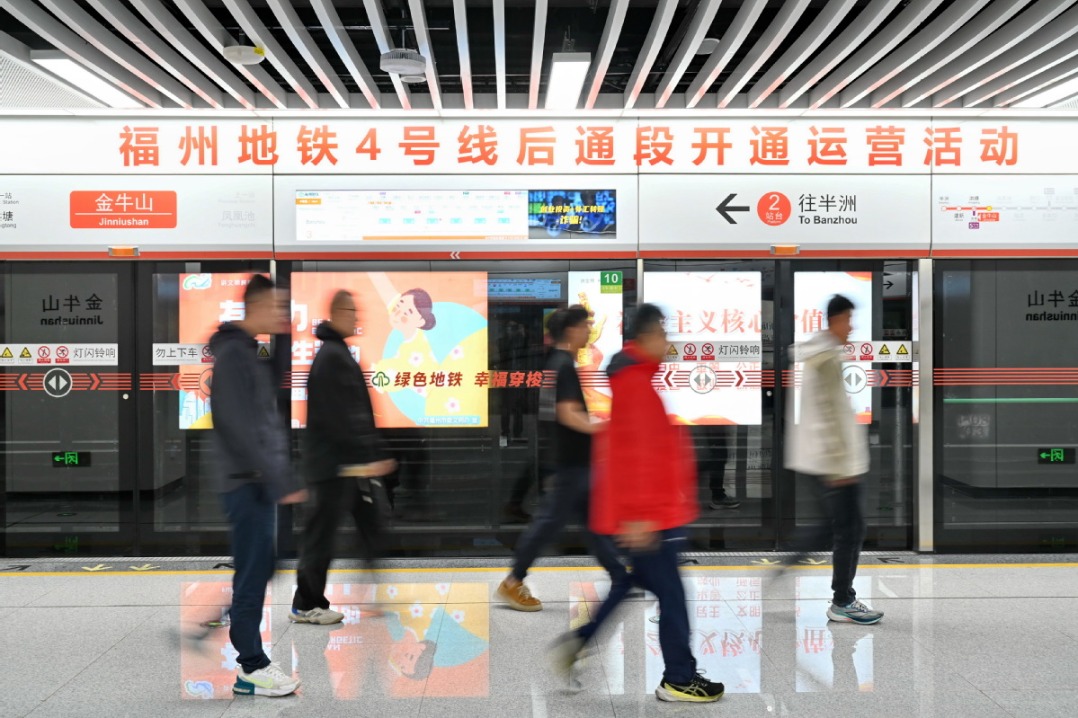Healthtech in focus amid virus fury
Deadly pandemic spurs innovation in artificial intelligence, technology shifts within industry, while also opening up investment opportunities. Pamela Lin reports from Hong Kong.


The global coronavirus crisis knows no borders, with hardly any business being spared. The healthcare industry is at the center of the onslaught - healthcare services and facilities bursting at the seams, its workforce being sapped to the core, coupled with the pressure for more-effective relevant products and methods to nail the virus.
Rising to the occasion, the sector is leaving no stone unturned in applying disruptive technologies to soften the blow, leveraging growing investments being poured into it.
Healthcare industry pundits say there will be a set of data-driven technologies applied in healthcare delivery in the coming decade as the pandemic has served as a catalyst to speed up technology shifts and adaptations in healthcare.
"The industry is clearly benefiting from the growing shift to telemedicine and the use of artificial intelligence and other big-data analytics in drug inventions, patient treatment and other related areas, such as tracking," Sundeep Gantori, equity analyst of UBS global wealth management, told China Daily.
Healthtech is no longer something new. Embracing such areas as robotic surgery, AI-assisted diagnostic imaging, as well as automating treatment and diagnosis, it calls for the ability to store, retrieve and analyze the vast pool of health data generated.
China, in particular, has seen the market for telemedicine - defined as the remote diagnosis and treatment of patients using telecommunications technology - getting a shot in the arm during the pandemic with government support to propel online medical consultations. The healthtech market thus offers solid double-digit growth opportunities, with more market leaders emerging in Asia's drug development and software segment.
China's healthtech field has two promising subsegments - pharmaceutical e-commerce and patient consultations - according to Jacky Choi, chief investment officer with Hong Kong-based Zeal Asset Management.
"The major player in China's online patient consultations not only has more than 1,400 doctors, but also used its AI-based consultation system to maximize the daily capacity of consultations to around 729,000 in 2019," he revealed.
Gravitating toward AI
During the Lunar New Year holidays, Chinese medical consultation apps registered nearly 6.2 million active users a day, the Qianzhan Industry Research Institute said. Telemedicine has relieved hospitals' workload and reduced the risks of people getting infected when visiting hospitals during the pandemic.
Ping An Good Doctor - the Chinese mainland's leading online health service provider listed in Hong Kong - said the number of its newly registered users surged tenfold with the onset of the coronavirus outbreak.
The company said last month it had been certified by global family physician organization WONCA for its AI healthcare system, which had accumulated 670 million consultation records. During the pandemic, the system made 1.11 billion consultation records, it said.
Unlike the penetration rate of telemedicine, those of AI, software and related applications under the healthtech subsegment are lower in China. But the country provides solid growth potential in healthtech in the long run, UBS said. At the same time, industry players are stepping up their technological adaptations.
Hong Kong biotech startup Insilico Medicine was a pioneer in using machine learning techniques to fight COVID-19 when the disease was first identified in January.
The startup relied on its AI platform to design and test the novel molecules that could potentially be applied in drug discovery to fight the pathogen.
"In late January, we had discussions with investors and board members about whether to focus on AI to help fight the virus," Alex Zhavoronkov, founder and chief executive of Insilico Medicine, told China Daily. Instead of repurposing available drugs, the team decided to use its AI platform to generate thousands of novel molecules that could stop the virus from replicating.
Insilico recently published the new molecular structures it has generated for researchers and industry experts, hoping to accelerate the process of finding a treatment for the disease.
Primarily focusing on cancer, fibrosis and other diseases, the startup has also prioritized COVID-related research and projects since the virus outbreak, as well as drugs that could improve the immune system of the elderly.
Located at Hong Kong Science and Technology Park - the city's biggest research and development base - Insilico's strategy is focused on the Chinese mainland, with Hong Kong as an entry point.
"Hong Kong has a practical system that allows you to operate globally, and it's not hard to attract money from the US here," Zhavoronkov said. The startup recently secured $37 million in Series B funding, with total investments raised so far exceeding $52 million.
Adjacent to the Chinese mainland, Hong Kong's capital market enjoys better access to regional healthtech leaders, providing it a first-mover advantage, Gantori said. However, he pointed out that with increased interest in healthtech, strong competition from the US capital market to attract more healthtech companies is inevitable. Nonetheless, the rising tide should provide abundant opportunities for the city's capital market.
Lately, the SAR government has been prioritizing the local healthtech industry and encouraging talents to innovate technologies to engage with patients by propelling research cooperation and offering funds.
However, Zhavoronkov reckoned it's still hard to get subsidies for R&D in Hong Kong, and it takes a longer time compared to Singapore.
On the mainland, there has been a spike in technological applications on individual wellness following the coronavirus crisis.
Oscar Ramos, partner and managing director of Chinaccelerator - a Shanghai-based startup accelerator - said there have been many transitions in terms of healthcare, particularly anything that's directly related to COVID-19.
Chinaccelerator is run by venture fund SOSV, with more than $700 million in assets under management.
Ramos said the pandemic has prompted two waves of business activities in the healthcare sector. The first wave involves those that are directly related to COVID-19, while the second concerns health that's more connected with the side effects.
There were also health applications recently developed to help employees get back to work with corporate wellness programs, Ramos said. He has seen plenty of interest from investors in mental health apps.
Investment opportunities
Entrepreneurs are innovating the healthcare field with cutting-edge technologies to address market demand. Ramos said China has quickly adopted new ideas with receptive consumers. Together with government supportive policies, the industry is definitely booming.
UBS estimates that current markets linked to healthtech themes exceed $100 billion.
During a rather bleak earnings season as public companies blame the pandemic for their gloomy performance, some listed healthtech enterprises have seen their share prices more than double.
Instead of looking at businesses' short-term performance, which poses great uncertainties, investors are urged to diversify their investment portfolios and look into long-term earning potentials - namely, the healthtech theme.
UBS found that the near-term disruption in financial markets presents attractive entry points for longer-term investment themes, particularly for healthtech.
For long-term investors who are willing to accept liquidity, they may gain a more direct exposure to healthtech opportunities through private equity investments, rather than in listed equities.
While investing in healthtech, investors should draw attention to major risks. Gantori warned that privacy and data security are key risks as rising public scrutiny of how data is collected and used is a particularly sensitive topic.
"The other challenge being explored is legal liability. Even where a program has been shown to be more accurate than human physicians, it's unlikely to be 100 percent reliable," he said, adding that the question of responsibility for misdiagnosis will have to be settled, potentially through legislation.
As many of the potential uses of digitization in healthcare rely on data sharing, data-handling rules may need to be updated in response to technological developments, according to UBS.
"Regulations on the data front are in progress across the globe, and they're progressing well so far, given the need to actively regulate the booming telemedicine market in China," Gantori said.
Choi also found that the COVID-19 outbreak has spurred near-term demand for online healthcare services, making healthcare one of the most popular investment themes at present.
The surging valuation of major players, he said, is definitely backed by massive fund inflows in the past months. As the number of distinctive players within the industry is quite limited, top health tech firms have seen their stock prices surge with support from the capital market.
- Video offers new evidence of Japan's germ-warfare crimes in China
- China launches new internet satellite group
- China's grain output tops 714 million tons in 2025
- Chinese hydrogen-powered drone sets longest distance flight record
- Highest passenger station along Qinghai-Xizang Railway opens
- Hong Kong's first traditional Chinese medicine hospital opens



































